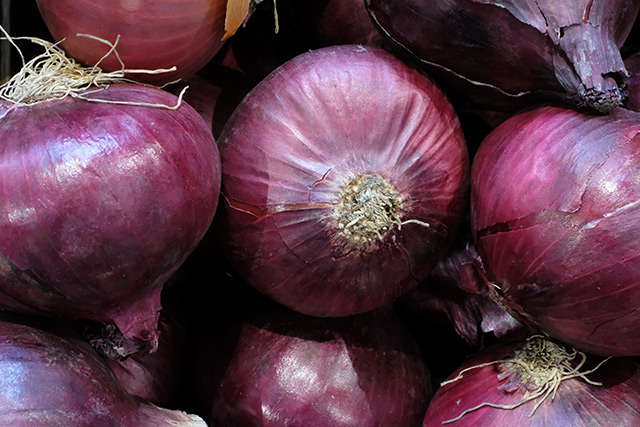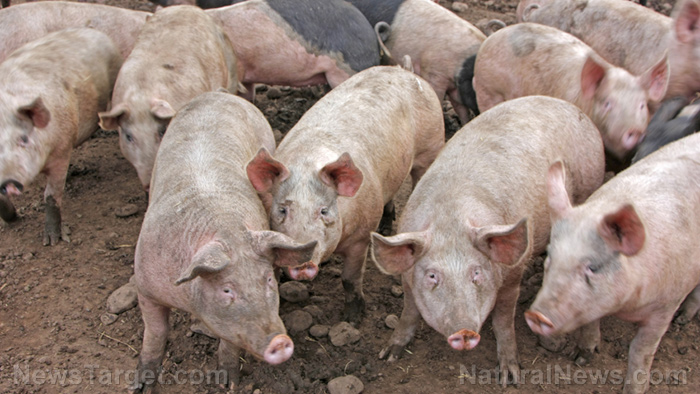Meta-analysis shows probiotics reduce colic in breastfed babies
07/16/2018 / By Russel Davis

A meta-analysis published in the journal Pediatrics, the flagship publication of the American Association of Pediatrics (AAP), revealed that the probiotic Lactobacillus reuteri (L. reuteri) may hold potential in reducing the frequency of crying in exclusively breastfed babies with colic under three months old. The analysis was carried out by researchers at the Murdoch Children’s Research Institute in Australia and 11 other institutions worldwide.
The research team pooled data from four double-blind clinical trials with a total cohort population of 354 infants with colic, 174 of whom underwent probiotic treatment while 171 had placebo treatment. According to the experts, the review included data from Italy, Poland, Canada and Australia. The scientists observed that exclusively breastfed babies who had probiotic treatment were twice more likely to reduce crying by up to 50 percent at three weeks of treatment compared with those in the placebo group.
“The probiotic group averaged less cry-fuss time than placebo at all time points. The probiotic group was almost twice as likely as placebo to experience treatment success at all time points. Intervention effects were dramatic in breastfed infants, but insignificant in 21 formula-fed infants. One particular strain, Lactobacillus reuteri (L. reuteri) DSM 17938 has shown promise. Lactobacillus reuteri DSM 17938 is effective and can be recommended for breastfed infants with colic. Its role in formula-fed infants with colic needs further research,” the researchers wrote.
“We did find evidence that L. reuteri is effective in breastfed babies with colic… Ultimately the effectiveness of this treatment will need to be assessed on a case by case basis. It is also important to remember that each probiotic strain works differently. L. reuteri is the only probiotic strain that may help crying babies who are breastfed,” said lead author Dr. Valerie Sung.
The review gained support from the International Scientific Association for Probiotics and Prebiotics.
Another study links probiotics to colic relief in infants
A 2007 study published in Pediatrics also showed that probiotic treatment may help alleviate colic in breastfed infants. The researchers enrolled 90 breastfed infants with colic as part of the study. The infants were randomly assigned to receive either the probiotic L. reuteri or simethicone daily for 28 days. The results showed that the daily median crying times at week one were 177 minutes per day in the simethicone group and only were 159 minutes per day in the probiotics group.
Likewise, the daily median crying times at week four were 145 minutes per day in the simethicone group and only 51 minutes per day in the probiotics group. The researchers also found that 95 percent of patients in the probiotics group responded well to the treatment, compared with a measly seven percent in the simethicone group. The experts did not observe any adverse effects following the treatments. (Related: Study finds that daily dose of probiotic helps improve infantile colic symptoms.)
“In our cohort, L. reuteri improved colicky symptoms in breastfed infants within one week of treatment, compared with simethicone, which suggests that probiotics may have a role in the treatment of infantile colic,” the researchers reported online.
Fast facts about colic
The American Pregnancy Association (APA) discussed that the causes of colic among babies remain unclear. However, the health group listed a few possible factors that may increase the odds of developing colic, which include:
- Immature nervous system
- Sensitive temperament
- Overfeeding or hypersensitivity to mothers’ diet
- Intestinal gas formation
- Mother’s smoking habit during pregnancy
The health agency also added a few key findings about the disease, which include:
- About 20 to 25 percent of babies meet the definition of colic
- The disease reaches its peak at six to eight weeks after birth
- The disease disappears for 50 percent of cases around three months
- The condition wanes in 90 percent of cases around nine months
- Babies with colic often cry worse at night
- Babies with colic produce discomforting, intense bouts of crying
- Infants with colic may pull up or extend their legs, clench their fists and pass gas
Visit AlternativeMedicine.news to learn more about probiotic treatment.
Sources include:
Tagged Under: babies, breastfeeding, colic, infant health, natural cures, Natural Treatments, prebiotics, pregnancy, probiotics




















